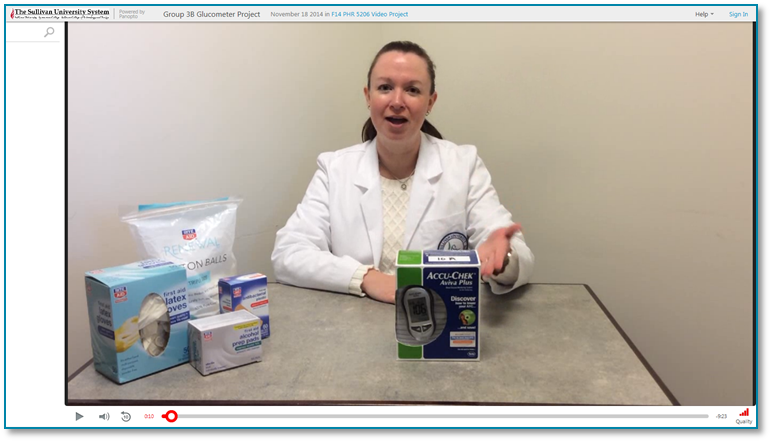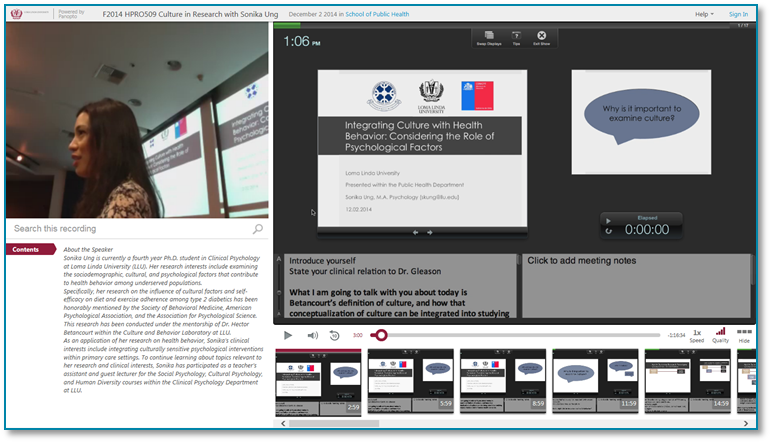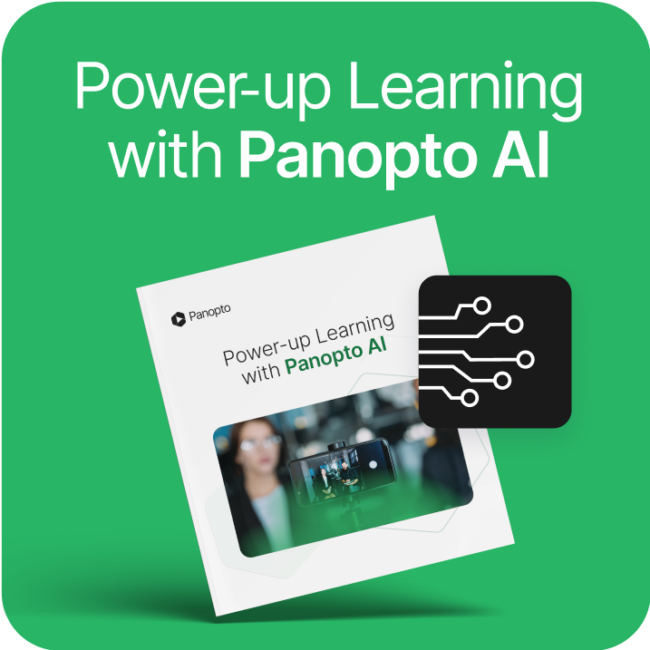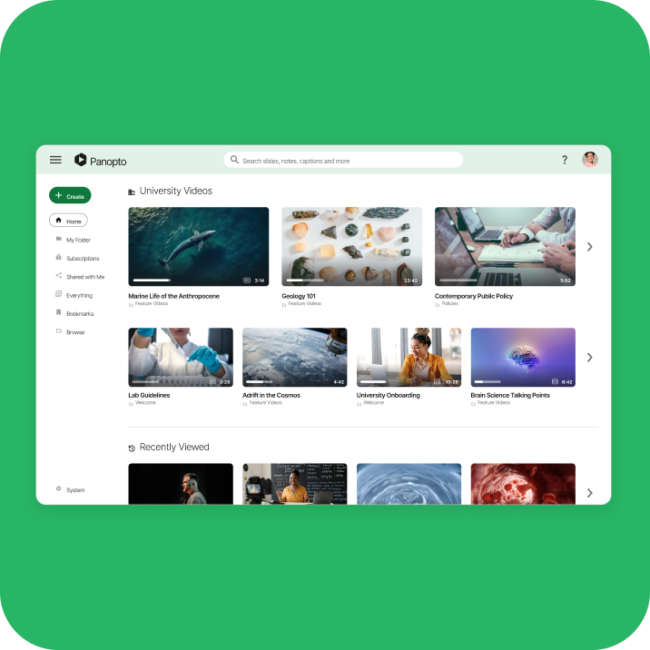- Uncategorized
This Week In Ideas Shared With Panopto — December 5, 2014
It takes about a 100 different muscles to speak.
Every word requires its own cooperative choreography between your jaw, tongue, lips, neck, and chest. Just to be born, every phrase first relies on the efforts of your lungs and diaphragm. Producing a sound that is recognizably human then demands all that effort pass through the larynx and across the vocal cords.
Executed precisely, all those actions enable us to produce an audible word — which, as studies have shown, still only makes up 10% of actual human communication. The slightest twitch of any of dozens of facial muscles can completely change the meaning of each word as it is formed. The smallest change in pitch, tone, or volume will fundamentally alter the value of your statement.
Along with the anatomical demands, there are the anthropological issues — every individual word you’ll ever speak relies on the cultural development and your own working knowledge of an oral tradition. And for virtually all of us, that will mean a language that was often invented centuries before your first breath and on a near daily basis retires old phrases, introduces new words, and subtly changes common pronunciations (sometimes even on a geographic region-by-region basis). And just to add to the complexity, if you’ve ever attended a public school, you’ll almost certainly have been introduced to another completely different tongue that will live in parts and participles in your cerebral cortex along with all the other components of your native vocabulary.
The good news is — you’ve already got all that covered. We speak as naturally as we breathe.
The bad news is — your PowerPoint slides don’t have any of that.
They need you to speak for them.
Taking your ideas from text to talk makes them more engaging, more persuasive, and more personal. It’s why storytelling has been a part of the human experience since the very dawn of language. In the past, people moved away from making presentations as text became easier to produce and share — but today the growing pervasiveness (not to mention, ease of use) of video is helping more and more people to rediscover the power of actually presenting ideas, rather than simply writing about them.
This week we saw more and more people taking advantage of video to share ideas, send messages, and make a statement. And in the spirit of passing it on, these are just a few of the ideas shared this week with Panopto’s video presentation software.

Roundtable on USPTO Use of Crowdsourcing to Identify Relevant Prior Art
This past February the White House issued a series of executive actions including crowdsourcing prior art as a means to strengthen patent quality. Join the United States Patent and Trademark Office (USPTO) for this recorded roundtable discussion addressing the executive action by exploring how the USPTO can utilize crowdsourcing tools to obtain relevant prior art in order to enhance the quality of examination and issued patents, and ways the USPTO can leverage existing private sector solutions for the electronic receipt and hosting of crowdsourced materials as a means to provide prior art to examiners.

The Truth About Wellbeing and the Trouble with Measurement
Join Newcastle University for the latest edition of the Little Heresies in Public Policy seminar series, featuring NISR theme champion for Wellbeing and Resilience, Dr Karen Scott. In the last decade there has been a significant policy drive to define and measure wellbeing — but the questions of whether government should measure wellbeing and what they do with those measures remain open. In this recorded lecture, Dr Scott suggests that many wellbeing measures as currently constructed, rather than creating shifts towards better wellbeing, only serve the status quo and that an inappropriate use of statistics is informing a ‘what works’ approach to wellbeing which replicates negative public policy cultures rather than creating meaningful change.

Accu-Chek Aviva Plus Glucometer Tutorial
Part of proper healthcare is simply helping patients to understand how to use the medications and medical devices involved in their treatments. Here, join the students from Sullivan University in this recorded student role play demonstration of how to appropriately use the Accu-Chek Aviva Plus glucose monitor. It’s a great example of just how valuable a video tutorial can be for making detailed instructions quick and easy to understand.

The Psychology of Online Dating
Can you really find true love on the Internet? How do people portray themselves online? Can you have a virtual affair? Join Dr Martin Graff, Head of Research in Psychology at the University of South Wales, for this casual conversation examining all of these issues and the latest empirical studies on online relationships. Graff looks into some of the major research work on the online disinhibition effect, which suggests that we disclose more personal information, and do this more quickly in online environments and gives some factual advice on how to construct dating site profiles, and the way to approach an online liaison with a potential dating partner. Recognizing the explosion in the provision of online dating sites, including those dedicated to finding partners for affairs, Graff closes this session with details from his own research on online infidelity, and asks whether it is possible to have a virtual affair.

Integrating Culture with Health Behavior: Considering the Role of Psychological Factors
Join Sonika Ung, a Ph.D. student in Clinical Psychology at Loma Linda University for this review of her research examining the socio-demographic, cultural, and psychological factors that contribute to health behavior among underserved populations. Ung’s research on the influence of cultural factors and self-efficacy on diet and exercise adherence among type 2 diabetics has been honorably mentioned by the Society of Behavioral Medicine, American Psychological Association, and the Association for Psychological Science.
Try It For Yourself!
Panopto makes it easy for anyone, anywhere to record presentations and share them online, both as live streaming webcasts and recorded on-demand video. To see how Panopto can help you share your ideas, contact our team for a free trial today.




